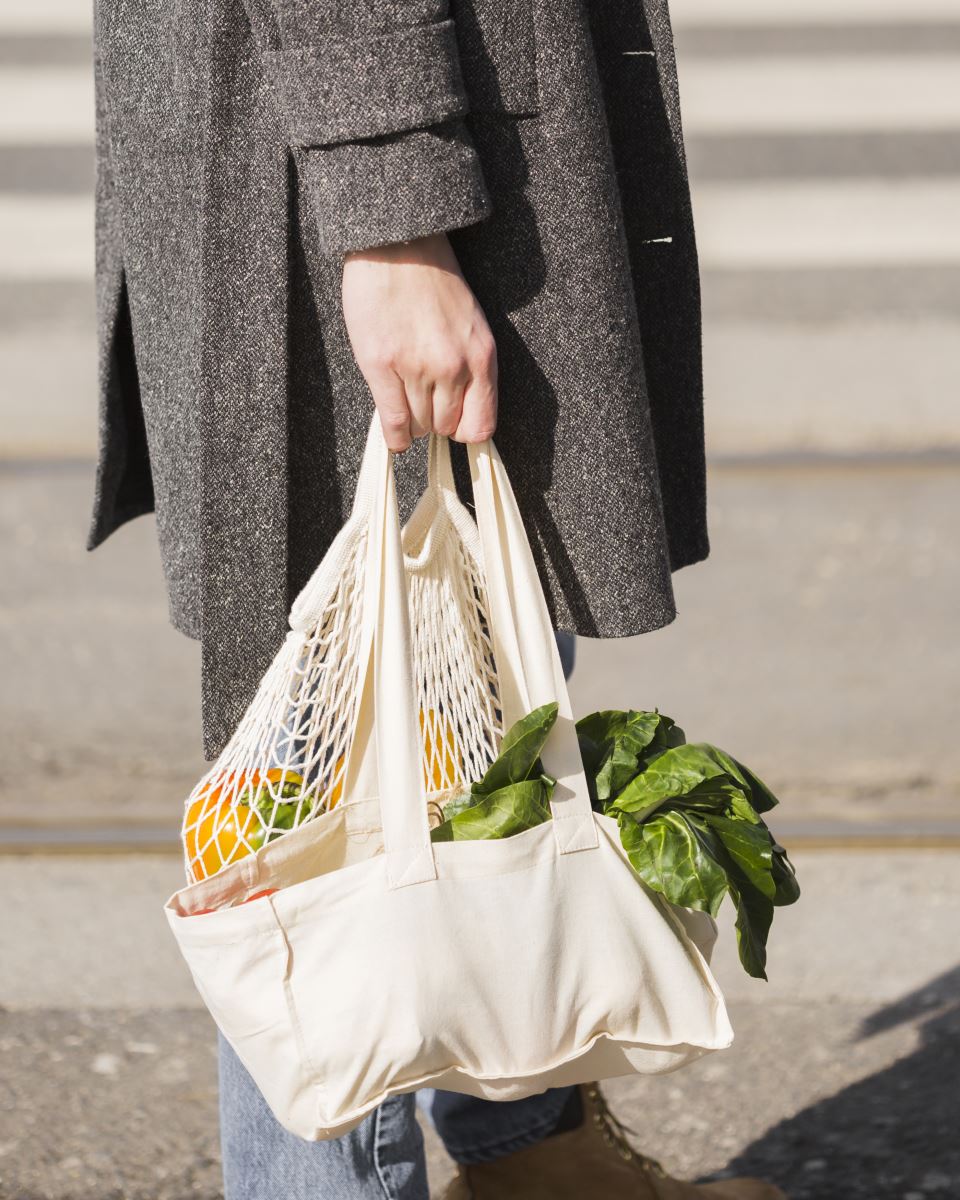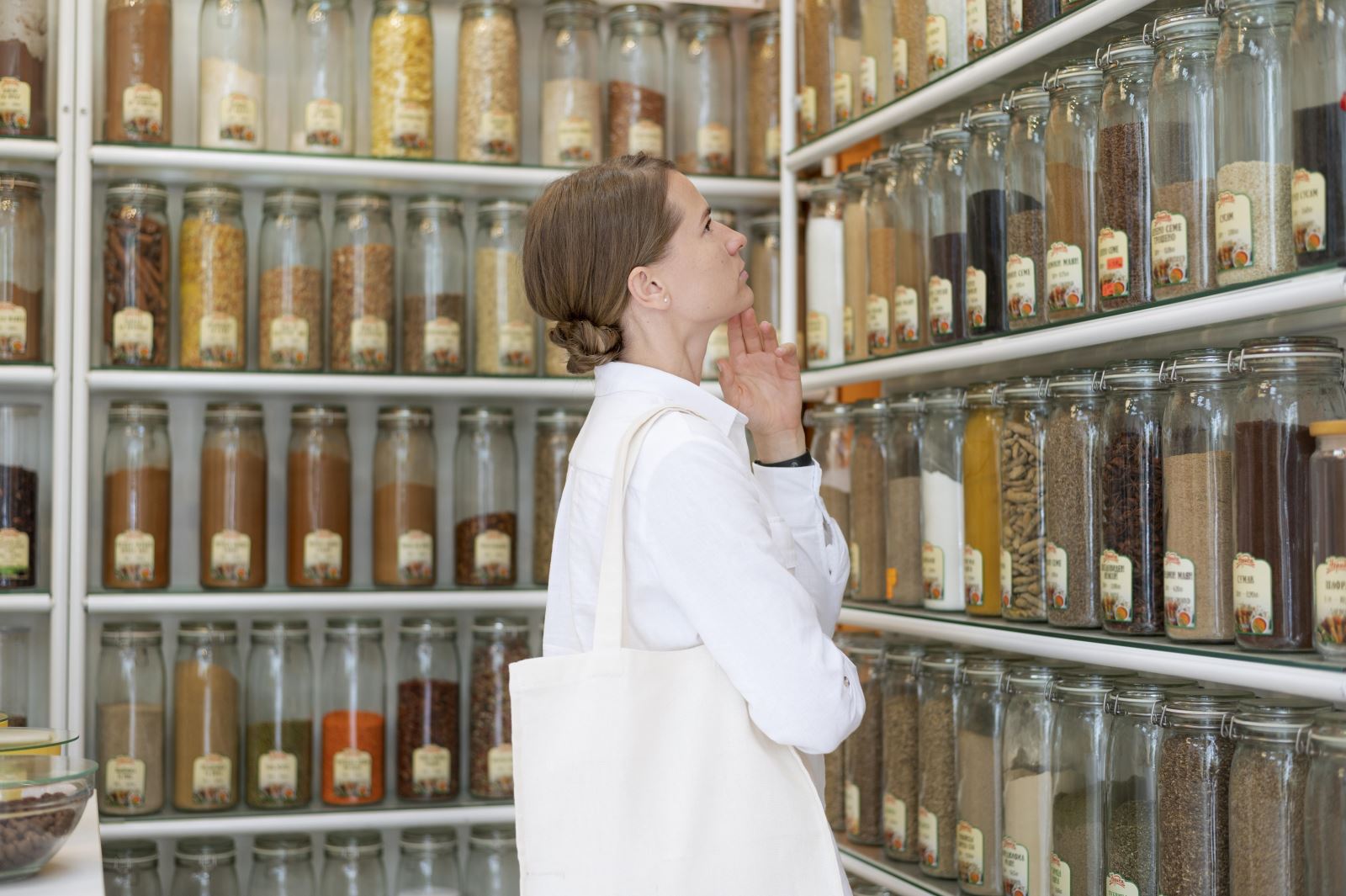Never miss a chance to live a little greener. You can practice simple good green habits and lead a sustainable lifestyle at the shop.
From Black Friday to New Year’s, the last quarter of the year is the most frolic shopping season. People, regardless of their lifestyle or financial condition, succumb to the throes of shopping mania. Adding to the turmoil and anxiety piling onto our already burdened lives, our excessive shopping wreaks havoc on the planet too. In this article, we present simple good green habits that can help us turn from mindless consumers to mindful changemakers.
.jpg)
Image by Freepik
1. Prepare to Shop
Before heading to the shops, you need to get prepared to avoid getting overwhelmed by sales advertisements and buying items you do not really need. Remember, never go shopping when hungry to make thoughtful decisions. Prepare a shopping list with items that are really needed; write down the required quantities of each item and for what duration. Reread the list and think which items are needed for immediate use and which can be postponed to a later date. Finally, have a final look on your list, and check if any item needs certain preparations.
2. Bring Your Own Shopping Bag
We often go shopping, and as soon as we arrive home and start unpacking, we find ourselves inundated with plastic bags that take centuries to decompose. Guess what? You have wasted lots of money on unnecessary resources that also contribute in one way or another to climate change. Avoid buying plastic items as much as you can, and the least you can do is to use your own reusable shopping bag. If you do not have a reusable shopping bag, I advise you to invest in one. Make sure that you can roll it up and store it in your purse or pocket, to encourage you to carry it wherever you go. You can also make your own homemade bag using old clothes; check this tutorial.

Image by Freepik
3. Shop In-Person
Online shopping has noticeably increased over the past few years; it can have a surprisingly large carbon footprint. Customers who request single items from different online stores lead to increased emissions and increased packaging waste, with individual items wrapped for protection and then packed in larger boxes for shipping. Delivery vehicles contribute to greenhouse gas emissions too, especially when deliveries make multiple trips for single items, returns and disposals, or fail to deliver the items from the first attempt. Instead, you can go shopping in-person or order items for delivery from the nearest stores; you can shop online with your friends as a group to minimize your carbon footprints.
4. Shop Locally
Purchase your needs from local companies and stores. When you shop locally, you increase your eco-conscious shopping and contribute to the economic prosperity of your community. This practice strengthens local economy as you support local businesses, foster job creation and business growth. Additionally, shopping locally contributes to a sustainable future. Locally made or grown products tend to have smaller-scale operations, which means less energy for manufacturing, storage, and transportation. This is translated into lower greenhouse gas emissions, conserved energy, and preserved natural resources.
5. Do Not Waste
Check with your favorite retail shop if it accepts using your already owned containers rather than bringing more plastics home. Bring reusable bags/containers; these could be bottles, jars, bags, or boxes for food and beverages. Ask customer service, if applicable, to calculate the weight of the empty container, record on a sticker before adding your item into it, and then do the math by subtracting the container’s tare weight from the gross weight. It is also preferable to go for products with minimal packaging that you will throw away as soon as you get home. It is not just an environmental issue; packaging chemicals are also hazardous to our health.
6. Shop Wisely
In case you need to purchase quantities of the same item, buy in bulk and consider purchasing family-sized products that have less packaging and cost less. If you have the space and the know-how, it can be an excellent method to fill your shelves with items you use on a daily basis; for example, seasonable vegetables, such as garlic, which you can chop and freeze for daily consumption. You cannot apply this to foods with a shorter shelf-life than canned items and dried food, such as dairy products; in this case, overbuying can result in food waste. When done right, it can yield big returns on the investment of both time and money.
7. Say No to Retail Therapy
Most of us find relief from stress through shopping, but it is not a healthy solution for managing stress. To overcome that FOMO (fear of missing out) feeling whenever coming across trendy items that are ultimately a waste of money, take an inventory of what you already have that might fill the hole. It might not be a perfect match, but it is much better than quickly discarding a new item or taking fast fashion risks. Instead of buying brand-new products, you can also save resources, energy, and money by swapping or exchanging items with your friends—apply to clothes, books, video games, etc. As for alternative coping with stress mechanisms, try more sustainable and effective ones, such as exercising, meditating, volunteering, or seeking professional help.
8. Go for Second-Hand Fashion
New clothes manufacturing consumes immense amounts of water and energy, such as cotton cultivation, dyeing, and finishing processes. You can eliminate additional environmental impacts by purchasing existing resources. Buying second-hand reduces usage of resources and new production cycles, and promotes sustainable practices that encourage circular fashion models. This means minimizing harmful environmental impacts and less garments ending up in a landfill, thereby extending clothes lifespan. Contribute to a more sustainable future, save some money, and enjoy unique and vintage fashion pieces to stand out from the crowd.
9. Be A Green Consumer
Be selective in the products you purchase. Always ask for alternatives to the item in terms of cost, size, and quantities. Buy energy-efficient for electronics, durable, reusable, or recyclable items, instead of other disposable products. Stop buying items that you really do not need, and be careful about buying items at its cost not its use.

Image by Freepik
Small things do make a big difference; practicing good green habits means celebrating life. Such simple practices can by all means save our budget, homes, and planet. If you cannot do them all, choose at least three and make them your habit this year. Let us collaborate to get one step closer to a greener planet and secure life for future generations.
References
ecomena.org
gov.hk
learnenglish.britishcouncil.org
lgcet.com
palmetto.com
stylewise-blog.com
wisebread.com
Cover Image by Freepik